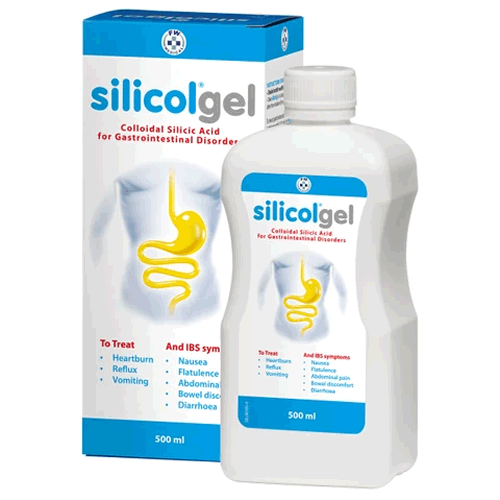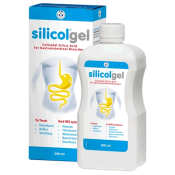What are the first signs of IBS?
As you can read from other verified sources such as The Mayo Clinic, The Cleveland Clinic or Harvard Medical School, the symptoms of irritable bowel syndrome, or IBS are wide-ranging and debilitating, plus, their severity and how long they last varies from person to person.
However, some common digestive problems often relating to irritable bowel syndrome can include:
- Stomach or belly pain, abdominal discomfort or abdominal cramps (often worse after eating and may be relieved after passing a stool). This may come in acute bouts or episodes of flare ups, or be more chronic pain, present for much of the time
- Unusual bowel habit episodes including diarrhoea, and/or urgency
- Flatulence, which may be accompanied by pain
- Bloating
- Altered bowel movement habits including constipation
These are amongst some of the most common signs of IBS. However, there are also a range of more surprising, lesser-known IBS symptoms such as:
- Excessive burping
- Heartburn
- Nausea
- Headaches
- Loss of appetite
- An overactive bladder
- Pain during sex
- Sleep or mental health issues intertwined
- Back pain (although in some cases a common symptom, this may also be a sign of kidney symptoms or kidney disease)
A ‘Symptoms Diary’ will allow you to keep note of any issues and should indicate if there are any links between what you’re eating and the severity of your symptoms.
Please note, the symptoms of irritable bowel syndrome differ from the symptoms of irritable bowel diseases, which include ulcerative colitis or Crohns disease, although some crossover of similar symptoms can also exist.
Generally, though, these conditions are more inflammatory, meaning they can give rise to more extreme symptoms such as rectal bleeding, or extreme abdominal pain, as can other serious conditions like colon cancer.
Also, other gastrointestinal disorders may produce similar bowel symptoms such as coeliac, or celiac disease, or lactose intolerance. These are more related to food intolerance, so whilst the large intestine may be somewhat affected, the advice would usually be different. If in any doubt, or you are looking to achieve a diagnosis, always seek advice and health information from qualified health professionals.
Should I see a doctor?
If you experience infrequent bouts of diarrhoea, bloating or mild abdominal pain then it's not necessarily a cause for concern - this can crop up now and again as a result of diet or lifestyle. The problem is when symptoms, such as pain, reoccur time and time again thus affecting your ability to get on with your daily routine.
So, if digestive problems are causing frequent discomfort it is really important to visit your doctor or healthcare provider in person, rather than only relying on online resources such as The Mayo Clinic, for an in-person check-up. Plus, if you're over 50 and notice any sudden change in your digestive symptoms, you should also have this checked with your doctor or healthcare professional straight away. They'll be able to do further investigations in order to determine the cause of your symptoms, plus they'll be able to provide expert advice on the matter.

How do you test for IBS?
Initially, our IBS symptoms checker or other online resources from The Mayo Clinic, for example, could help you to better understand the symptoms you are experiencing, plus it provides more information on irritable bowel syndrome and how to tackle it. However, it might not be appropriate to rely on this completely, especially if your symptoms are persistent.
Then, if you visit your doctor they will ask you a series of questions about your symptoms, and typical bowel movement habits, and may check your stomach for lumps and swelling. After this they may decide to arrange a blood or stool test in order to rule out any other cause for your symptoms, in a bit to make a final IBS diagnosis.
IBS patients' diagnoses can be made using the 'Rome IV criteria' whilst ruling other conditions out. However, the criteria being met is still rather vague, can still include a wide range of symptoms; and ultimately there is no one 'cure'; hence why irritable bowel syndrome is often referred to as an 'umbrella term' for digestive malfunction. However, ultimately, irritable bowel syndrome may be diagnosed and a different type of IBS may be assigned, including IBS-C (constipation-dominant), IBS-D (diarrhoea dominant) or IBS-M (mixed type).
What causes it?
Although there is no clear cause of IBS, there are a few things that are thought to contribute to the problem. Although diet seemingly often has the biggest impact on IBS symptoms, diet can often be considered as a 'trigger' rather the true underlying cause. Often, as the symptoms become better managed, different diet components can become better tolerated once more, unless of course there is an underlying allergy at play. Regardless, whilst IBS symptoms are apparent, certain foods in the diet including caffeine, spices, alcohol and chocolate can often trigger symptoms. On top of this, an intolerance to the likes of dairy or wheat in the diet can also add to digestive upset.
Whilst the true cause of irritable bowel syndrome is relatively unknown and may vary from person to persons, a variety of underlying causes could likely be contributing in many cases, including a combination of gut sensitivity issues, inflammation throughout the digestive tract and beyond, gut microbiota or bacteria imbalance, hormones and underlying stress and nervous system influences. Psychological factors like stress or mental health issues can also have a significant impact on the digestive processes. In this instance, they may work less efficiently, hence the onset of problems like constipation or looser stools.
Can you suddenly develop IBS?
Irritable bowel syndrome can develop at any age, though most people are in their 20s or 30s when symptoms first occur, plus, it seems to be more common in women than men.
As I mentioned, stress can contribute to irritable bowel syndrome symptoms however, in this instance, problems may occur in someone who doesn't normally have the condition, and their general health is optimal. As long as the source of stress isn't a long-term problem though, any issues tend to ease once the stressful situation has passed.

What’s next?
Once you've received a diagnosis of IBS there are a range of measures you can put in place to help manage the condition. Whilst there is no 'cure', as such, for IBS, a multi-disciplinary approach is often the key to help manage the symptoms of IBS:
- Eating habits – include eating slowly, opting for warm foods and chewing each mouthful thoroughly are just a few simple eating habits that will help to ease IBS symptoms
- Minimise stress - If you are stressed whilst eating, the adrenalin you're producing will switch off your digestive system. If the stress you are experiencing is more chronic, this can cause more long-term problems, so adopting some stress management techniques is often an important part of helping to manage the symptoms of IBS.
- Diet – limiting your intake of food and drinks that are likely to cause irritation in your stomach can help to ease some of the symptoms of IBS. Problem foods will vary from person to person so, as I've already mentioned, a symptoms diary can help pin-point where the issues lie. FODMAPS, for one, are one food group that limiting, at least initially, could help to manage your symptoms. However, fibre is also important, so how should you approach this?
Click here to read more on FODMAP friendly foods, and watch my self-care video tip below for more information:
My Self-Care Tip: Understanding fibre if you have IBS
Here I explain how to better understand and approach fibre, and in particular FODMAPs, if you suffer from IBS:
- Silicol Gel - Licensed for symptoms including nausea, flatulence, abdominal pain and diarrhoea, Silicol Gel can help offer relief from common symptoms.
- Herbal bitters remedies – formulas containing bitter herbs such as artichoke, dandelion, peppermint or boldo may help to support your stomach and gut in the longer term.
- Pre & probiotics – Prebiotics such as Molkosan and ultimately the addition of good quality probiotics such as Optibac or Symprove are often a useful tactic to help minimise the symptoms of IBS by addressing and imbalance in good gut bacteria.
- Medication – your doctor may choose to prescribe medication in order to bring relief from your IBS symptoms. Anti-spasmodic medication can help if diarrhoea is particularly problematic as it works to reduce and stabilise contractions in the gut. Laxatives on the other hand, draw more water into the bowel to soften stools and relieve constipation
If you have any other queries about IBS I’d recommend having a look at my blog ‘7 common IBS questions’ where you’ll find even more information on this common health condition.
Blog first published 16/10/18, updated on 08/02/24









